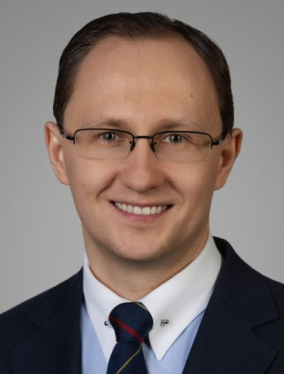
Paweł Figurski, PhD
Catalogue of Music Sources
Paweł Figurski obtained a PhD in Humanities from the Faculty of History at the University of Warsaw (2016) and a Master of Theological Studies from the University of Notre Dame (2017). His research focuses on the history of liturgy and its political significance. Figurski also studies medieval manuscript culture, book illumination, and the theology of politics in the Early and High Middle Ages. He is an active researcher, database analyst, and developer of tools for automated research on the Latin liturgical tradition in the field of digital humanities.
He was a fellow of the Alexander von Humboldt Foundation and a member of the Institute for Advanced Studies at the University of Regensburg (2022-24). Previously, he was a Garstka Fellow (2014-15), a Fulbright Scholar (2015-16), and a Junior Research Fellow (2016-17) at the University of Notre Dame. He was also a visiting professor at the University of Münster (2018). From 2019 to 2021, he was a member of the Postdoctoral Society at Trinity College, Cambridge. Before joining the Institute of Art, he held positions at the Institute of History at the University of Warsaw (2017-18) and the Tadeusz Manteuffel Institute of History at the Polish Academy of Sciences (2018-22).
He is currently the Principal Investigator (PI) of two projects: “Liturgica Poloniae...”, funded by the Polish Ministry of Higher Education (NPRH), and “Dangerous Prayers...”, funded by the Polish National Science Centre (SONATA).
Publications
Paweł Figurski, Liturgy, Iconography, and Sacramental Kingship in the Ottonian & Salian Monastery of St Emmeram. Case Studies of the Politica Theologia Prima, w: St. Emmeram: Liturgie und Musik vom Mittelalter bis zur Frühen Neuzeit, red. Harald Buchinger, David Hiley, Katelijne Schiltz, Regensburg 2023, s. 69-104.
Gerald Schwedler, Paweł Figurski, Christian Raffensperger, László Veszprémy, Emir O. Filipović, Cooperation and Conflict in Diplomacy and War Within and Around Central Europe, w: Oxford Handbook of Medieval Central Europe, red. Nada Zecevic, Daniel Ziemann, Oxford 2022, s. 157-172.
Paweł Figurski, Beyond the Monarchical Church Model: Liturgy, Manuscripts, and Bishops in the Kingdom of Poland. Case Studies from the Eleventh and Twelfth Centuries, w: Die 'Episkopalisierung der Kirche' im europäischen Vergleich, red. Andreas Bihrer, Hedwig Röckelein, Berlin 2022, s. 361-404.
Political Liturgies in the European Middle Ages. Beyond the Legacy of Ernst H. Kantorowicz,
red. Paweł Figurski, Pieter Byttebier, Johanna Dale, Turnhout 2021.
Paweł Figurski, Sacramental Kingship: Modern Historiography versus Medieval Sources, w: Political Liturgies in the High Middle Ages: Beyond the Legacy of Ernst H. Kantorowicz, red. Paweł Figurski, Johanna Dale, Pieter Byttebier, Turnhout 2021, s. 25-60.
Paweł Figurski, Grzegorz Pac, Saints and Relics, w: Handbook of East Central and Eastern Europe in the Middle Ages, 500-1300, red. Florin Curta, London 2021, s. 338-353.
Paweł Figurski, Liturgiczne początki Polonii. Lokalna adaptacja chrześcijańskiego kultu a tworzenie polskiej tożsamości politycznej w X-XI wieku, w: Oryginalność i wtórność polskiej kultury politycznej i religijnej (X-XIII w.), red. Roman Michałowski, Grzegorz Pac, Warszawa 2020, s. 724-795.
Paweł Figurski, Oratio periculosa, politica sed religiosa. O znaczeniu kanonu rzymskiego Mszy w kulturze średniowiecza, w: Liber Romani. Studia ofiarowane Romanowi Michałowskiemu w siedemdziesiątą rocznicę urodzin, red. Grzegorz Pac, Krzysztof Skwierczyński, Warszawa 2020, s. 82–96.
Paweł Figurski, Political Liturgies, Cologne's Manuscript Culture, and Historical Myths: The Provenance of the Sacramentary of Tyniec, w: Das Sakramentar aus Tyniec. Eine Prachthandschrift des 11. Jahrhunderts und die Beziehungen zwischen Köln und Krakau in der Zeit Kasimir des Erneuerers, red. Klaus Gereon Beuckers, Andreas Bihrer, Köln 2018, s. 66-91.
Paweł Figurski, The Exultet of Bolesław II of Mazovia and the Sacralisation of Political Power in the High Middle Ages, w: Premodern Kingship and Contemporary Political Power. The King's Body Never Dies, red. Karolina Mroziewicz, Aleksander Sroczyński, Amsterdam 2016, s. 73-111.
Paweł Figurski, Das sakramentale Herrscherbild in der politischen Kultur des Frühmittelalters, ,,Frühmittelalterliche Studien”, 2016, t. 50, s. 129-161.
Paweł Figurski, Obraz władcy liturgiczną modlitwą za króla? Nowa perspektywa dla interpretowania miniatury koronacji Henryka II z Sakramentarza Ratyzbońskiego (München, Bayerische Staatsbibliothek, Clm 4456, fol. 11r), “Historia Slavorum Occidentis”, 2014, t. 2, s. 107-128.
Ja-My-Oni. Tożsamości ludzi średniowiecza red. Ludwik Jurek, Paweł Figurski, Maksymilian Sas, Wojciech Oczkowski, Warszawa 2012.
Paweł Figurski, Duchowość eucharystyczna Bernwarda z Hildesheim. O obrazowości kultury ottońskiej, ,,Kwartalnik Historyczny”, 2012, t. 119, nr 3, s. 425-465.
Paweł Figurski, Przekaz ideowy i datacja Mors et miracula beati Verneri, ,,Studia Źródłoznawcze. Commentationes”, 2010, t. 48, s. 25–43.
Projects
Early Music in Central Europe: Collaborated Research, Migrating Sources, Transregional Connections, członek grantu finansowanego przez Visegrad Fund (2023-2026).
Liturgica Poloniae. Katalog polskich rękopisów liturgicznych. Cz. 1: do około 1300 r., kierownik grantu finansowanego przez Ministerstwo Edukacji i Nauki w ramach programu Narodowego Programu Rozwoju Humanistyki (2022-2027).
Zaniedbane źródła. Społeczno-polityczna historia Polski na podstawie źródeł liturgicznych, kierownik grantu finansowanego przez Narodowe Centrum Nauki w ramach programu Sonatina 2 (2018-2022).
Oryginalność i wtórność polskiej kultury politycznej i religijnej (X-XIII w.), członek grantu finansowanego przez Narodowe Centrum Nauki w ramach programu Opus 9 (2017-2018).
"Rex nunquam moritur" Comparative Approaches to Political Theologies from the Middle Ages to the Present, członek grantu finansowanego przez Ministerstwo Nauki i Szkolnictwa Wyższego w ramach programu NPRH (2014-2016).
Władza królewska i sakrament Eucharystii. Studium z dziejów syntezy religii i polityki w ottońsko-salickiej kulturze politycznej do połowy XI wieku, kierownik grantu finansowanego przez Narodowe Centrum Nauki w ramach programu Preludium 3 (2012-2015).








